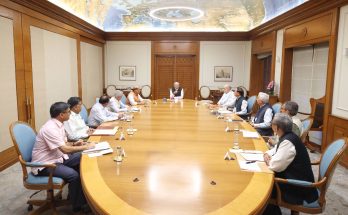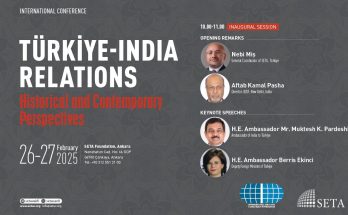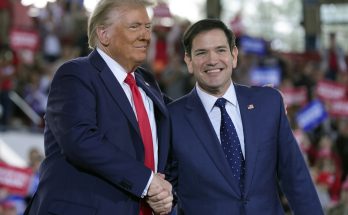New dynamics in India-EU relations
- The establishment of the new Government under Prime Minister Modi provided a new dynamism to our foreign policy, with a new Foreign Policy Team in Delhi since May 2014. Similarly, in the beginning of November 2014, there were many changes at the European Commission Headquarters in Brussels with an entirely new team under new leadership and a new organisational structure. Headed by Commission President Jean-Claude Juncker, former Prime Minister of Netherlands, the major players will be injecting a new dynamism into the Commission’s foreign policy, including its relations with India. President Juncker is the first President of the Commission from the European Parliament and the Presidency has significantly increased powers after the Lisbon Treaty of 2009. A new College of Commissioners have taken over along with a new first Vice President, Frans Timmermans, of the Socialist Party who was one of Netherland’s most able Foreign Minister’s. Similarly, Federica Mogherini of Italy as the new Vice President and High Representative of the European Union for Foreign and Security Policy she is already ushering in a new approach in the EU’s Common Foreign and Security Policy. The new Commissioners under the guidance of Commission President are seeking to bring about important changes in the manner in which the Commission and the Union does its business globally.Engagement with the EU and the Commission
- In this context, what are the overall priorities of our Foreign Policy and how do we fit them into our current engagement with the European Union? Our priorities which the European Union fully appreciates, could be summarized as follows:
- Safeguarding India’s territorial integrity, its economic and trade interests and nurturing its civilisational heritage and enhancing its strategic space;
- Creating conditions in our immediate neighbourhood so as to facilitate channelizing a large part of our resources to health, education, environment and other vital social areas;
- Developing our international political relationships to extend our interests in ever widening concentric circles, thus enabling the full harnessing of our political, economic and technical resources.
- On all the above parameters, the EU has a common interest. On social issues too, the European Union appreciates the measures being taken by India, the world’s largest democracy to ensure that its 1.2 billion people enjoy all human rights and fundamental freedoms, as enshrined in the Universal Declaration and the two International Covenants. The new team in Brussels would be keeping the above in mind as the preparatory process for the next India-EU Summit in April, 2015, in Brussels commences.Strategic Partnership: Summit level Interactions: A review
 ( In Pic: H.E. Ambassador Krishen Behari Lall, Head of the Mission of India to the EEC presenting his credentials to Walter Hallstein President of the Commission of the EEC) India-EU relations date back to the early 1960s. Our leadership, from the very inception, had a clear perspective regarding its relations with the former EEC. India was among the first to establish diplomatic relations with the European Economic Community (EEC) in 1962. Since then, the Grouping grew from a common market to a common currency and from a Community to a Union, with many attributes of sovereignty transferred to it from Member States, especially after the Lisbon Treaty. Simultaneously, our engagement with the EU also grew commensurately, complementing and supplementing our relations with EU member-states. India also developed very close bilateral relations with key EU countries such as France, Germany and the United Kingdom.
( In Pic: H.E. Ambassador Krishen Behari Lall, Head of the Mission of India to the EEC presenting his credentials to Walter Hallstein President of the Commission of the EEC) India-EU relations date back to the early 1960s. Our leadership, from the very inception, had a clear perspective regarding its relations with the former EEC. India was among the first to establish diplomatic relations with the European Economic Community (EEC) in 1962. Since then, the Grouping grew from a common market to a common currency and from a Community to a Union, with many attributes of sovereignty transferred to it from Member States, especially after the Lisbon Treaty. Simultaneously, our engagement with the EU also grew commensurately, complementing and supplementing our relations with EU member-states. India also developed very close bilateral relations with key EU countries such as France, Germany and the United Kingdom. ( In Pic: Prime Minister Shri Atal Bihari Vajpayee with the President of the European Union Mr. Romano Prodi (first from left) and PM Portugal Mr. Antonio Guterres (third from left) on his arrival to attend the EU-India Summit in Lisbon (June 28, 2000)) The Joint Political Statement of 1993 and the 1994 Cooperation Agreement signed between EU and India took bilateral relations beyond trade and economic cooperation to a new level. It opened the way for annual Ministerial meetings between India and EU Troika, consisting of the present, past and future EU leaderships and a broad political dialogue on regional and international issues of common interests. Thanks to the vision of former Prime Minister and Bharata Ratna Shri Atal Bihari Vajpayee, and the supportive role of the then Portuguese Presidency of the European Union, the first India-EU Summit was held in Lisbon in June, 2000. It was preceded by an India-EU Business Summit in Rome, two days before the Lisbon Summit. I recall, as Joint Secretary (West Europe), who had accompanied the Prime Ministerial delegation to Lisbon, that the Summit was a great success and laid the foundation for a new strategic relationship with the EU. Thereafter, at the suggestion of Portugal, the EU decided to institutionalise annual Summits with India, the venue to rotate between the Presidency and India. After the Lisbon Treaty, the Summits when hosted by the EU were held in Brussels. It should be noted that such Summits, as established in June, 2000, were only held with a few of EU’s strategic partners. The EU presently has strategic partnerships with ten countries including USA, Canada, Russian Federation, Japan, China, Brazil, South Africa, Republic of Korea and Mexico, apart from India. The Summits ensured regular political dialogue between India and EU at the highest level, preceded by Ministerial and Senior Officials’ meetings between India and EU Troika as well as focus on trade and commercial issues through the India-EU Joint Commission and the Annual Business Summits. Though the terminology changed after the Lisbon Treaty in 2009, interaction continued at the same level.
( In Pic: Prime Minister Shri Atal Bihari Vajpayee with the President of the European Union Mr. Romano Prodi (first from left) and PM Portugal Mr. Antonio Guterres (third from left) on his arrival to attend the EU-India Summit in Lisbon (June 28, 2000)) The Joint Political Statement of 1993 and the 1994 Cooperation Agreement signed between EU and India took bilateral relations beyond trade and economic cooperation to a new level. It opened the way for annual Ministerial meetings between India and EU Troika, consisting of the present, past and future EU leaderships and a broad political dialogue on regional and international issues of common interests. Thanks to the vision of former Prime Minister and Bharata Ratna Shri Atal Bihari Vajpayee, and the supportive role of the then Portuguese Presidency of the European Union, the first India-EU Summit was held in Lisbon in June, 2000. It was preceded by an India-EU Business Summit in Rome, two days before the Lisbon Summit. I recall, as Joint Secretary (West Europe), who had accompanied the Prime Ministerial delegation to Lisbon, that the Summit was a great success and laid the foundation for a new strategic relationship with the EU. Thereafter, at the suggestion of Portugal, the EU decided to institutionalise annual Summits with India, the venue to rotate between the Presidency and India. After the Lisbon Treaty, the Summits when hosted by the EU were held in Brussels. It should be noted that such Summits, as established in June, 2000, were only held with a few of EU’s strategic partners. The EU presently has strategic partnerships with ten countries including USA, Canada, Russian Federation, Japan, China, Brazil, South Africa, Republic of Korea and Mexico, apart from India. The Summits ensured regular political dialogue between India and EU at the highest level, preceded by Ministerial and Senior Officials’ meetings between India and EU Troika as well as focus on trade and commercial issues through the India-EU Joint Commission and the Annual Business Summits. Though the terminology changed after the Lisbon Treaty in 2009, interaction continued at the same level.- Subsequently, in September 2004, during the Dutch presidency of the European Union, the relationship was upgraded to a Strategic Partnership and given a well-rounded policy perspective with a Joint Action Plan in 2005 which was reviewed in 2008. The EU recognised India as a ‘regional and global leader, engaging increasingly on equal terms with other world powers’.
 ( In Pic: The 12th India-European Union Summit in New Delhi. EU was represented by Herman Van Rompuy, President of the European Council and Jose Manuel Barroso, President of the European Commission and India by then Prime Minister Manmohan Singh) Since the first Summit in Lisbon in 2000, twelve more have been held. The one held in Brussels on 10th December 2010 was the first to be held after the entry into force of the Lisbon Treaty, while the 12th India-EU Summit in New Delhi was the first to be held in India after the Lisbon Treaty. The next Summit to be held in April 2015 in Brussels between our Prime Minister and European Commission President Juncker would be of particular significance, since it would mark the first Summit level dialogue between the new leaderships on both sides. It is hoped that the Summit would break the current deadlock on the EU-India FTA (Free Trade Agreement).
( In Pic: The 12th India-European Union Summit in New Delhi. EU was represented by Herman Van Rompuy, President of the European Council and Jose Manuel Barroso, President of the European Commission and India by then Prime Minister Manmohan Singh) Since the first Summit in Lisbon in 2000, twelve more have been held. The one held in Brussels on 10th December 2010 was the first to be held after the entry into force of the Lisbon Treaty, while the 12th India-EU Summit in New Delhi was the first to be held in India after the Lisbon Treaty. The next Summit to be held in April 2015 in Brussels between our Prime Minister and European Commission President Juncker would be of particular significance, since it would mark the first Summit level dialogue between the new leaderships on both sides. It is hoped that the Summit would break the current deadlock on the EU-India FTA (Free Trade Agreement).- Among the highlights of earlier Summits, the following could be noted:
- The 5th Summit at The Hague in September 2004 endorsed EU’s proposal to upgrade its relationship to a ‘Strategic Partnership’.
- The 6th Summit held in New Delhi on 7 September 2005 endorsed a comprehensive Joint Action Plan (JAP) setting out a road map for India-EU interactions in diverse sectors.
- The 7th India-EU Summit held in Helsinki on 13 October 2006 was marked by the acceptance by both sides of the recommendations of the High Level Trade Group to launch negotiations on a Broad-based Trade and Investment Agreement.
Future Perspectives: Concluding Reflections
- Ambassador Joao Cravinho, Head of Delegation of European Union to India, who now steers the EU-India relationship instead of the Troika, expressed optimism on future trends. He noted that our Prime Minister’s focus on growth and development “plays very well in the EU context”. He added that the new focus on renewable energy and growth of smart cities i.e. planned urban development with technology, had the full support of the EU. Ambassador Cravinho expressed optimism regarding a possible breakthroughs in the Brussels Summit in April 2015, while acknowledging that there were some outstanding issues that needed to be addressed in the negotiations scheduled for early January 2015 on the India-EU FTA. Ambassador Cravinho noted that the EU was seeking an extended “deep FTA” while India had not yet concluded such an extended FTA with any country including Japan. The absence of such a FTA is the biggest impediment to a dynamic, economic and trade relationship, given that the European Union today is India’s largest trading partner. This is an issue that need to be addressed on a priority basis. The stakes are high, since a properly structured FTA could push India’s growth for the next decade. If structured poorly, it could derail it for just as long.
- A nation’s foreign policy is strongly influenced by the imperatives of its strategic environment, its perception of its own neighbourhood and the perception of its own status in the international community. On the basis of the above, India has sought to engage and build bridges with European Union and the Commission. The policy has brought rich dividends and should be further strengthened by the new team players and leaders of the Commission and the European Union. While endorsing our new Government’s focus on growth and democracy, the EU would do well to recall that doing business with India involves more than the simple principle of ‘ever quicker returns’. To those who propound this approach, our response would be that the imperatives of democracy may sometimes slow down policy reforms, but would the EU or the Commission have it any other way, in a less democratic, less pluralistic India?
(courtesy: MEA)
Author Profile
- India Writes Network (www.indiawrites.org) is an emerging think tank and a media-publishing company focused on international affairs & the India Story. Centre for Global India Insights is the research arm of India Writes Network. To subscribe to India and the World, write to editor@indiawrites.org. A venture of TGII Media Private Limited, a leading media, publishing and consultancy company, IWN has carved a niche for balanced and exhaustive reporting and analysis of international affairs. Eminent personalities, politicians, diplomats, authors, strategy gurus and news-makers have contributed to India Writes Network, as also “India and the World,” a magazine focused on global affairs.
Latest entries
 India and the WorldJune 26, 2025Operation Sindoor: India Sheds Restraint, Rediscovers Utility of Force
India and the WorldJune 26, 2025Operation Sindoor: India Sheds Restraint, Rediscovers Utility of Force India and the WorldJune 23, 2025BRICS summit in Rio to focus on Global South, local currency trade
India and the WorldJune 23, 2025BRICS summit in Rio to focus on Global South, local currency trade Africa InsightsJune 11, 2025New Opportunities in India-Japan Cooperation in Africa
Africa InsightsJune 11, 2025New Opportunities in India-Japan Cooperation in Africa India and the WorldMay 23, 2025Post-Operation Sindoor, India reminds Turkey, China of concerns and sensitivities
India and the WorldMay 23, 2025Post-Operation Sindoor, India reminds Turkey, China of concerns and sensitivities

 ( In Pic: H.E. Ambassador Krishen Behari Lall, Head of the Mission of India to the EEC presenting his credentials to Walter Hallstein President of the Commission of the EEC)
( In Pic: H.E. Ambassador Krishen Behari Lall, Head of the Mission of India to the EEC presenting his credentials to Walter Hallstein President of the Commission of the EEC) ( In Pic: Prime Minister Shri Atal Bihari Vajpayee with the President of the European Union Mr. Romano Prodi (first from left) and PM Portugal Mr. Antonio Guterres (third from left) on his arrival to attend the EU-India Summit in Lisbon (June 28, 2000))
( In Pic: Prime Minister Shri Atal Bihari Vajpayee with the President of the European Union Mr. Romano Prodi (first from left) and PM Portugal Mr. Antonio Guterres (third from left) on his arrival to attend the EU-India Summit in Lisbon (June 28, 2000)) ( In Pic: The 12th India-European Union Summit in New Delhi. EU was represented by Herman Van Rompuy, President of the European Council and Jose Manuel Barroso, President of the European Commission and India by then Prime Minister Manmohan Singh)
( In Pic: The 12th India-European Union Summit in New Delhi. EU was represented by Herman Van Rompuy, President of the European Council and Jose Manuel Barroso, President of the European Commission and India by then Prime Minister Manmohan Singh)





